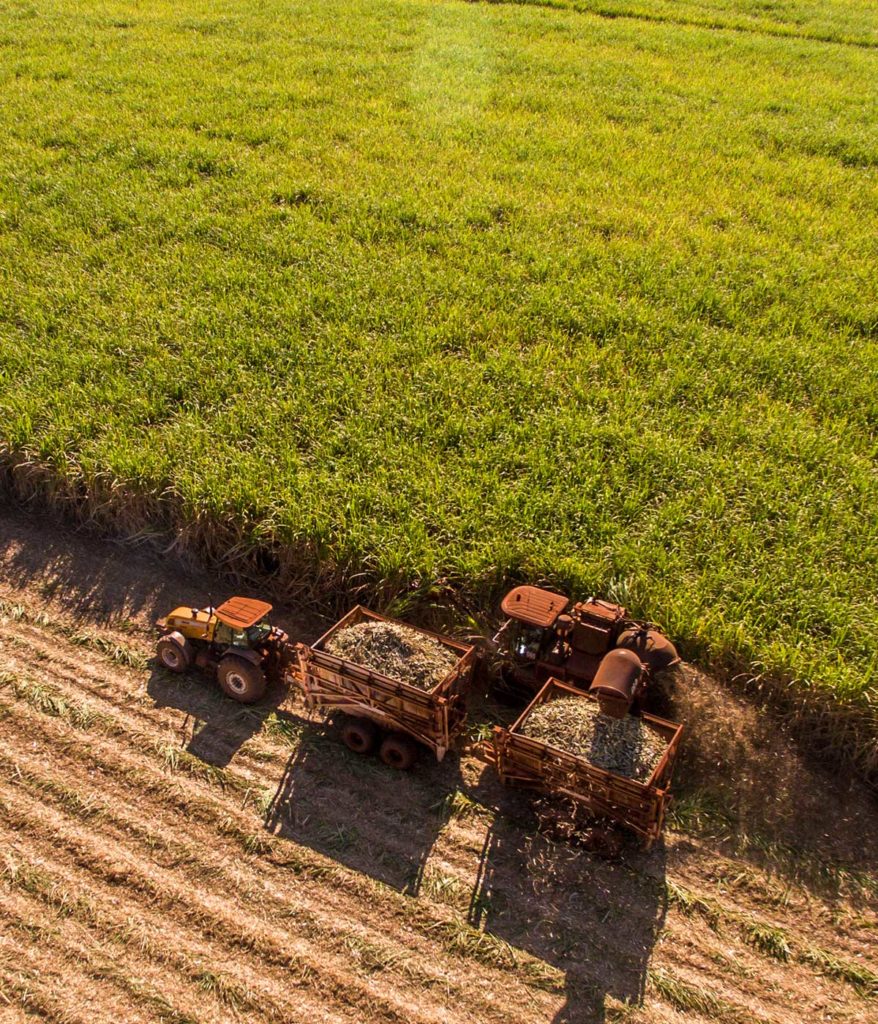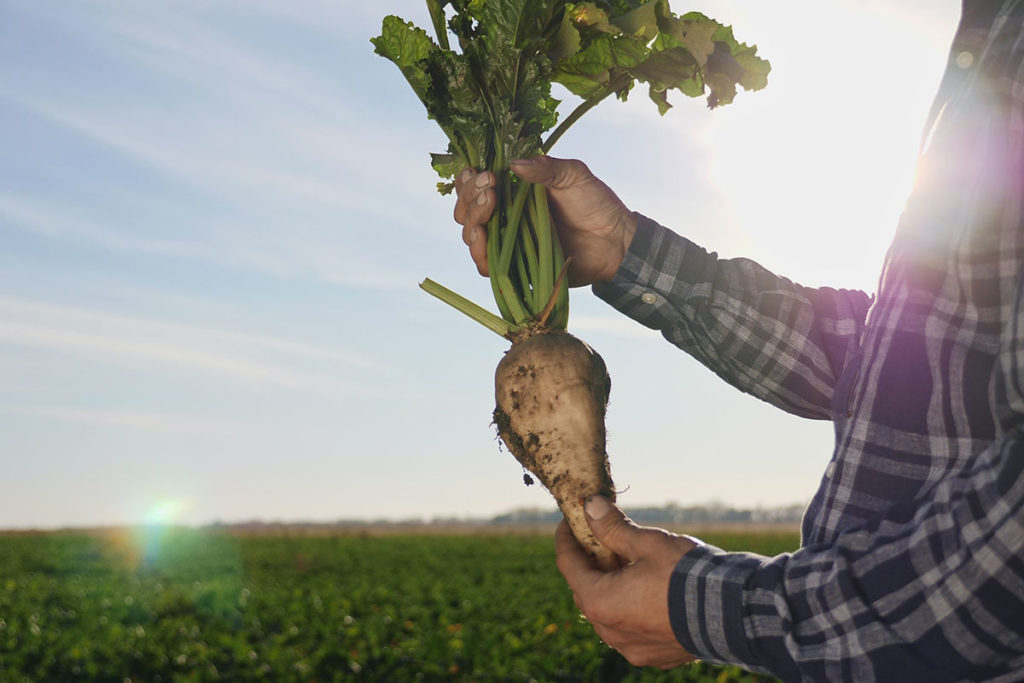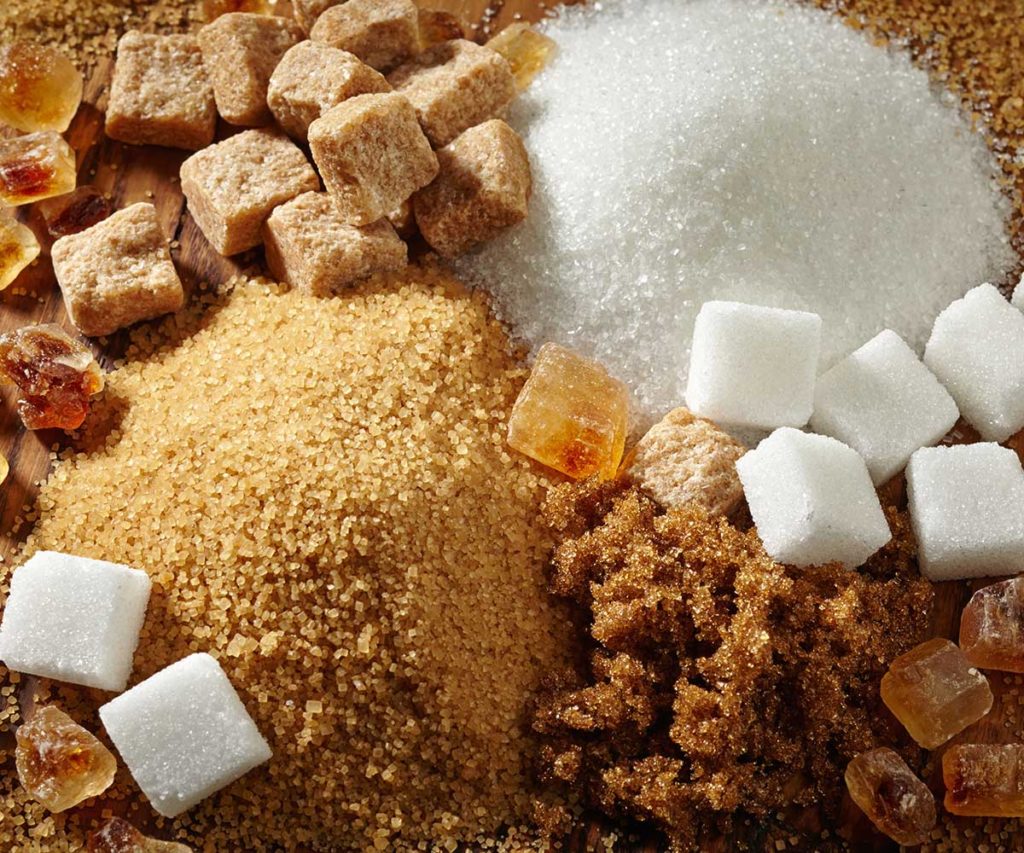Industrial sugar
Industrial sugar, also known as white sugar, is by far the most common type of sugar. At wholesaler August Töpfer & Co., you can order white sugar in various qualities, grain sizes and packaging units.
An overview of the history of industrial sugar

8000 BCE:
Oldest sugarcane find
6000 BCE:
Sugarcane spreads from East Asia to India and Persia


600 CE:
In Rome of Late Antiquity, sugar was considered a luxury good that was imported from India and Persia; findings indicate the cultivation of sugar
1100 CE:
Sugar reached Europe for the first time after Antiquity


1500 CE onwards:
Cultivation of sugar plantations including in South America; sugar was still considered a luxury good
1801 CE:
The foundations for industrial sugar production were established


1850 onwards:
Industrial production expanded and the price of sugar fell
Industrial sugar and white sugar: Differences and commonalities
The term sugar is used as a synonym for sucrose. It refers to sugar extracted from different plants. In most cases, the most widespread type of sugar is meant: white sugar. But this designation does not reveal the raw material used to make the product. White sugar is the purest form of sugar. It comprises more than 99 percent sucrose and contains hardly any other substances, nutrients or trace elements from the plant.
White sugar in the wholesale trade can be divided into two categories based on the purity of the crystals: EU Category I and Category II. Category II refers to conventional industrial sugar. As the name suggests, this sugar is industrially produced. Major customers, confectionery manufacturers and companies in the food industry use this type of sugar for a range of applications. Industrial sugar can be subdivided further based on different qualities such as grain size. Which wholesale product is the right choice for you depends on the transport, cooking and baking processes as well as individual recipe and customer requirements.
How is white sugar produced?

The production of industrial sugar depends on the raw material used. Sugarcane is harvested six to twelve months after planting. In most cases, farmers harvest the crop by hand. Alternatively, special harvesting machines alleviate the difficult work. After transport to a sugar factory, rollers crush the sugarcane. The raw juice is then created in boilers. This contains undesired components like soil, fibres and other residues. Lime and carbon dioxide are added to clean and separate sugar from non-sugar substances. In the next step, the water content of the thin juice is reduced through evaporation. The resulting thick juice has an increased sugar content of up to 65 percent. To accelerate crystallisation, seed crystals are added. As soon as the ratio of sugar and syrup is balanced, centrifuges separate the two elements. This process is called refining and is repeated up to three times. The syrup – or cane molasses – also contains a significant amount of sugar after this procedure. However, current technology cannot remove it from the syrup. Due to the impact of heat during production, most of the nutrients in the raw material are lost. The last step involves drying the sugar, which is then temporarily stored in silos or immediately packed in Big Bags and sacks.
The production of white sugar from sugarbeet starts 26 to 30 weeks after planting, once the plant is ready to harvest. Cultivation typically occurs in temperate climatic zones, where the harvesting season runs from mid-September to mid-December. After harvesting, sugarbeet is initially shredded. This results in sugarbeet chips as an intermediate product. The raw juice is extracted by adding hot water and applying diffusion processes. The subsequent steps are the same as for the production of industrial sugar from sugarcane.


The wide variety of sugar types
White sugar is conventionally produced from sugarbeet and sugarcane. Both plants contain useful quantities of sucrose, which is extracted and dried. The key difference between the two materials lies in where the plants are cultivated. While sugarcane grows in tropical regions, sugarbeet is prevalent in temperate climatic zones. Products made from sugarcane are also called cane sugar and they account for 74 percent of sugar traded worldwide. Cane sugar should not be confused with raw sugar, which is not completely refined and is characterised by a brown colour.
By far the most prevalent white table sugar is refined sugar, also known as granulated sugar. It comprises at least 99.7 percent pure sucrose and meets strict purity standards. This refined sugar can be made from sugarcane or sugarbeet. White sugar is available in different grain sizes suitable for different applications.
Caster sugaris a granulated sugar with medium-sized grains. Caster sugar has finer grains than granulated sugar.
Coarse granulated sugar has particularly large grains and is ideal for decorating pastries and other baked goods. An alternative name is pearl sugar.
Tea sugar is coarse and easily dissolved. As the name suggests, this type of sugar is especially suited to sweetening hot drinks.
Icing sugar is finely ground to the point that the crystals are no longer perceptible to the touch. This type of sugar dissolves very easily and is ideal for use in baked goods.
A special form of industrial sugar are Sugar cubes. They are characterised by a cuboid form and are useful as a dosed sweetener. The use of this type of sugar dates back to the 1990s.
Organic white sugar from the wholesale trade
Wholesaler August Töpfer & Co. offers a wide selection of sugar products, many of which are also available in organic quality. Organic white sugar is produced using organically grown sugarcane or sugarbeet. The cultivation, production and distribution are subject to strict monitoring by independent and accredited inspection bodies. The organic label is only awarded to products that meet all necessary conditions. This includes refraining from the use of additives and certain processes, which are employed in the manufacture of conventional products. Sugar products from organic cultivation are ideal for further processing in food and drinks that bear the organic label. Organic white sugar is a perfect substitute for conventional white sugar. This makes switching to organic products easier, as recipes don’t have to be adapted. Moreover, organic industrial sugar is ideal for consumers who attach importance to a health-conscious, balanced diet. In our product range you can find almost any quality of sugar, including fairtrade with corresponding FLO certification (Fairtrade Labelling Organization).
Order white sugar from the wholesaler
Most white sugar supplied in Central Europe is transported loose in silo vehicles or in silo containers. Traditional wholesaler August Töpfer & Co. from Hamburg offers business customers the option to use their own dedicated silo in which the ordered industrial sugar is transported and delivered. Furthermore, you can order white sugar in Big Bags of 1,000 to 1,200 kilograms net weight each or in sacks with a net weight of 25 to 50 kilograms. The bulk containers are stacked and delivered on pallets. Industrial sugar is too concentrated to be infested by microorganisms and can be stored packed for multiple years.
August Töpfer & Co. works closely in all areas with producers in the relevant countries of origin. Together with long-standing and trusted partners, we ensure punctual delivery of products of the highest quality all year round. To improve and develop our high standards on a continuous basis, we maintain close contact with inspection bodies and authorities.
